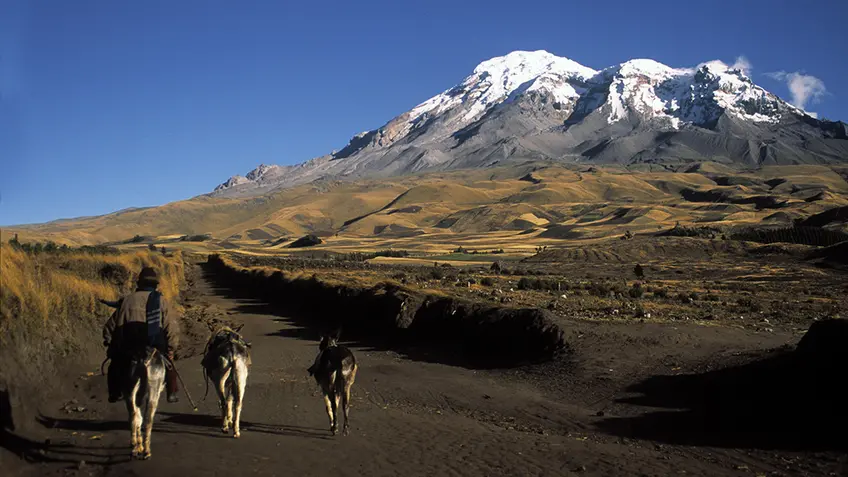Ecuador Expands NDC Implementation
“Working alongside sectors is critical not only for developing our NDC, but to build the necessary know-how that can improve buy-in and implementation capacity."
- Humberto Re Carrera, Undersecretary of Climate Change, Ministry of Environment and Water of Ecuador.
Unlike most other countries, Ecuador presented its updated NDC in 2019. The multilevel, multistakeholder NDC enhancement process resulted in stronger sectoral ownership, more ambitious measures, and improved data and information that will boost action and serve as an invaluable learning experience for the 2025 NDC update process.
“WHOLE-OF-GOVERNMENT" APPROACH TO NDC IMPLEMENTATION
A major success in Ecuador’s NDC process has been transforming its INDC, submitted in 2015, into a new and updated NDC underpinned by detailed action plans through a highly participative approach. Using nationally crafted methodologies, the NDC Implementation Plan was developed under the Ministry of Environment and Water’s coordination role and will be officially adopted by the end of 2020. Five sectors focus on mitigation, six on adaptation, and each was led by the responsible line ministry.
These instruments prove essential to Ecuador’s climate and development policy for three main reasons. First, they created capacities and a strong sense of NDC ownership across sectoral agencies, local governments, and civil society. The health sector, for example, had a strong capacity-building approach in the Implementation Plan development, with training and technical assistance provided to the Health Ministry throughout.
Second, the plans provide a clear and realistic view of the milestones, outputs, domestic investments, and international support needed to meet climate and development targets. For instance, the sectoral adaptation plan for strategic and productive sectors pinpoints how, by when, and which infrastructure project development guiding instruments will have to incorporate climate change variables and criteria.
Third, the plans capture and aim to amplify and replicate successful implementation stories. To date, sectoral and cross-sectoral implementation programs are underway, linking greenhouse gas emissions reduction and addressing climate vulnerability with priority agendas and policies of productive sectors. This includes ProAmazonia, an initiative to halt deforestation in Ecuador’s Amazon region within Ecuador’s REDD+ Action Plan framework. The Government emphasizes more, and ambitious, initiatives will be required. A sectoral approach to implementation plans helps secure support from different stakeholders and the simultaneous growth of multiple initiatives across sectors.
FROM CLIMATE POLICY MAINSTREAMING TO IMPROVED TRACKING
As a highly vulnerable country, adapting to the effects of climate change is a top priority in Ecuador’s development agenda.
The National Adaptation Plan (PLANACC), one of 43 flagship climate projects in the country, provides a common framework to advance adaptation planning and implementation in six priority sectors identified in the Climate Change National Strategy. It will also serve as a baseline to develop a new NDC by 2025—a process that Ecuador expects to launch in 2023.
With NDC Partnership member support, detailed work was carried out to increase the technical robustness and quality of information for decision-making in the context of climate change adaptation and mitigation. This includes, for example, developing goals for natural and water heritage sectors, as well as climate risk methodologies formulated for the six adaptation sectors. Together, these allow for consistent, systematic tracking and targeted decisions based on the best available information about priority climate-related risks.
Likewise, from a mitigation perspective, the Government is advancing the improvement of country-specific information and data collection systems to estimate emissions and reductions in the energy sector, particularly in the energy industry. This will develop comparable information on the effectiveness of policies and measures adopted under the NDC implementation plan for this sector, enhance national statistics and relevant indicators, and streamline reporting in light of new transparency requirements under the Paris Agreement.
MOBILIZING FINANCE TO STRENGTHEN CLIMATE POLICIES
Developing coordination mechanisms and strategies to mobilize climate finance is another good example of intersectoral coordination around Ecuador’s NDC. Through the Working Group on Sustainable Finance (Mesa de Finanzas Sostenibles), established and co-led by the Ministry of Environment and Water and the Ministry of Economy and Finance with partner support, the Government aligns domestic and international resources with NDC Implementation Plans. This work encompasses mainstreaming climate into national macroeconomic modelling, developing a National Strategy of Sustainable Finance with innovative financial and economic instruments for decarbonization, and developing an investment project pipeline, among other strategies. In the context of the post-pandemic recovery the country faces as its primary policy and development objective in 2020 and beyond, these actions are more relevant than ever.
The Government also intends to work on identifying and developing economic and social incentives through public-private investment. This will create an enabling environment where strategic investments in low-carbon and climate-resilient development can be scaled up and redirected towards NDC implementation. Developing a project portfolio ensures the state budget goes hand-in-hand with strengthening climate policies so the subnational and national levels align with the Paris Agreement and SDGs objectives.
This process is expected to bring together all sources of climate finance needed to fulfill NDC goals. It will also increase NDC ambition and implementation with the Ministry of Economy and Finance to further build commitment internally and with other financial actors.
Members supporting Ecuador: The AFD; the European Commission; the FAO; the GEF; Germany (through GIZ); the Global Water Partnership; the IDB; IRENA; the Nature Conservancy; UNDP; and the World Bank.
This is a PiA 2020 story: Browse the multimedia version or PDF version.
